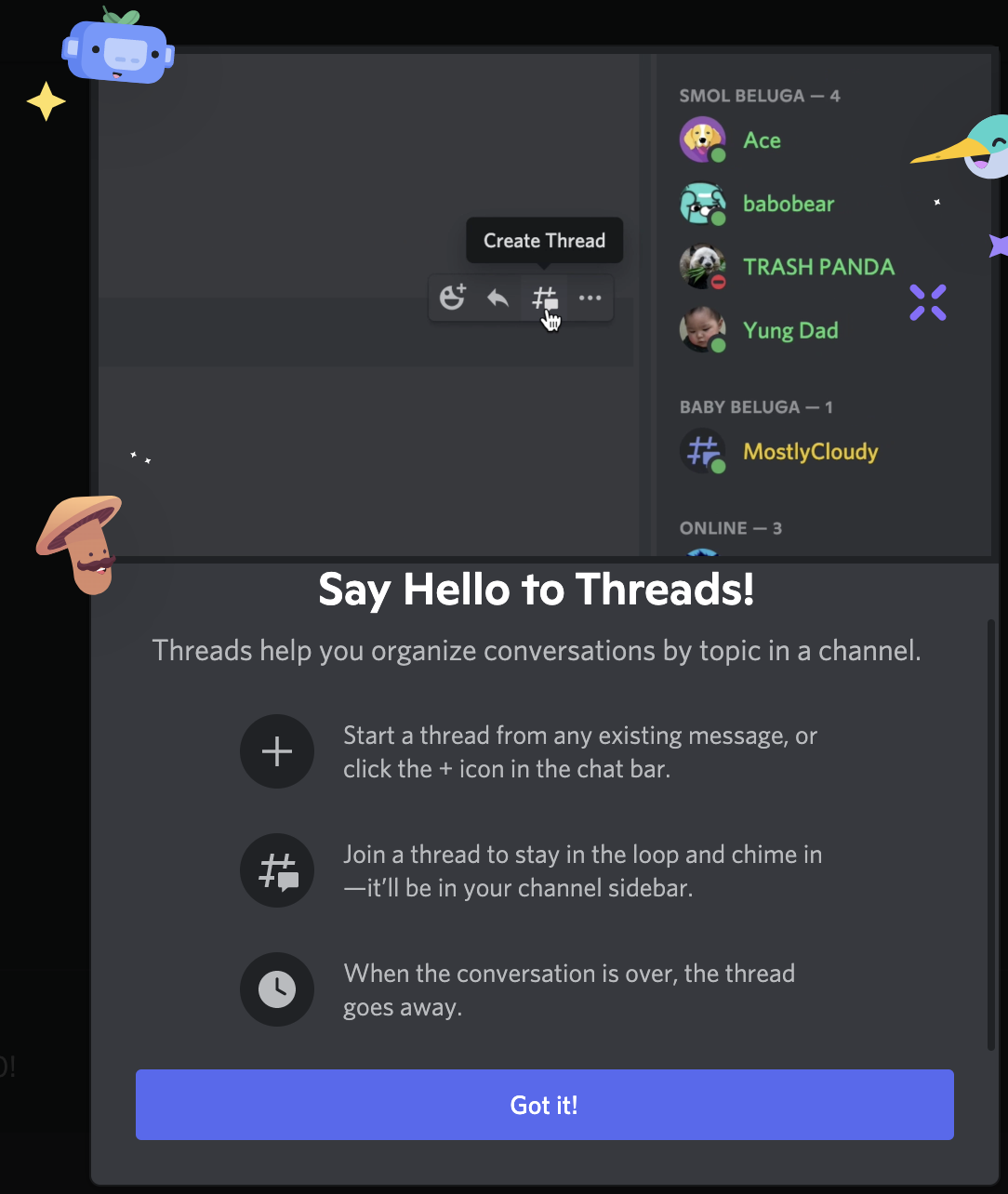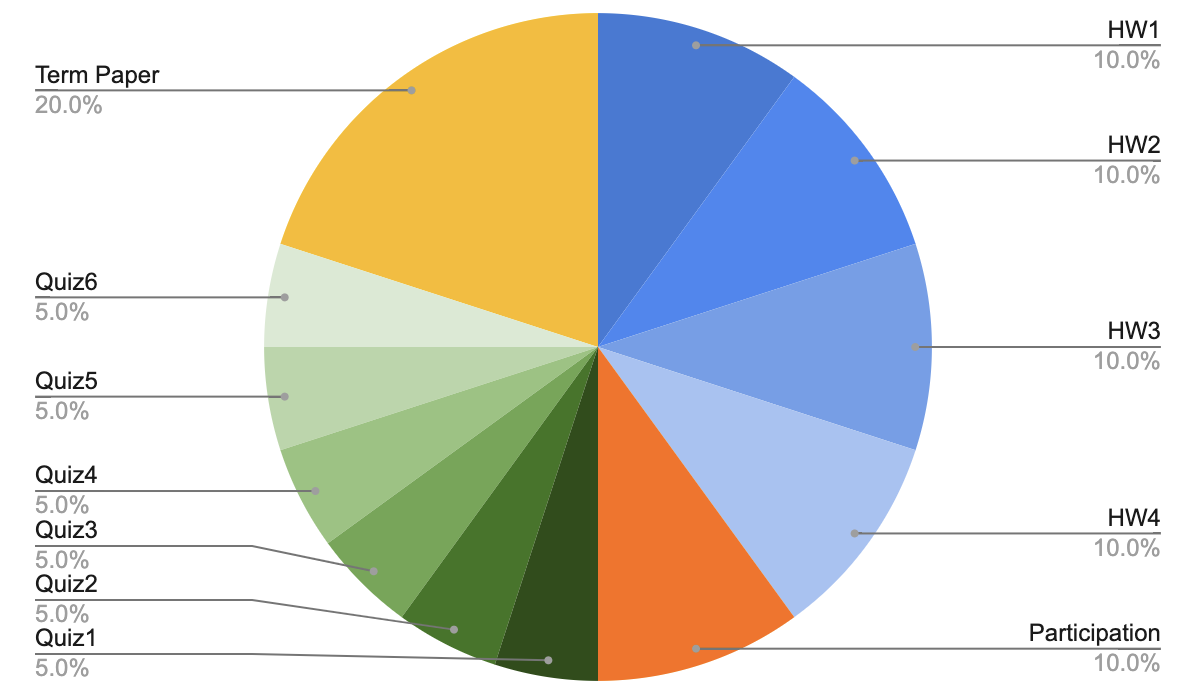
CSC 103
How Computers Work
Smith Computer Science

How Computers Work
Smith Computer Science
These sections contain information about how the class is run
Professor: Pablo Frank Bolton (pfrank at smith)
Research interests: Human-Robot Interaction, Robotic Perception, STEM education
Class Schedule:
In the Discord server, you'll see two text channels and 3 voice channels:

Objectives
This introductory course provides students with a broad understanding of computer hardware, software and operating systems. Topics include the history of computers; logic circuits; major hardware components and their design, including processors, memory, disks, and video monitors; programming languages and their role in developing applications; and operating system functions, including file system support and multitasking, multiprogramming and timesharing.
Another perspective:
Students are encouraged to form study groups and to collaborate on the assignments where it has been explicitly allowed. Please read “Collaboration Policy and Academic Honesty” in this syllabus.
Assignments - When and what are they about?
Quizzes (15-min)
The students should expect to take weekly quizzes that will emphasize basic facts and foundational skills while also serving as assessments of material presented in the previous week’s class. Quizzes are closed-book and closed-notes, and will be administered via Moodle. Quizzes are not to be discussed with other students. Quizzes will be posted on Saturday and will be due before a class on Tuesday. Quizzes are expected to be a recap of what students learn from the course material presented in the previous week’s class and they allow for the instructor to ensure the student is able to grasp the previous week’s material.
As a culminating activity in this class, students will work in groups to research a topic of current interest relating to the world of computing in general. You will present the results of your research as a 4-6 page paper (1000-1500 words) and as an oral presentation to the class. All research topics must be approved in advance (typically in the third week of the course) so start brainstorming topics early.
Prerequisites:
Responsibilities - Students must
Course Philosophies
Throughout the class, students should focus on adhering to the following general tenets:
There is no required textbook for the course.
We will be using web resources that will be linked through the course website and/or Moodle.
Grade Calculation:
Late Submissions:
Submissions received after the posted deadline will incur a penalty of -20% per day for up to two days (after which they will be ineligible for credit). Unless otherwise specified as part of a student's documented accommodations, requests for extensions outside of the two-day grace period will be granted only under the following conditions: 1) the request is made in writing (via Discord DM to the instructor) at least 48 hours in advance of the due date (and the instructor approves the extension); or 2) the professor has been notified by the student's dean that the student requires an extension for personal or health reasons.
Submitting 1 second late is the same as a full day late. Plan ahead and submit early.
Accommodations:
As individuals, we learn in different ways. I try to vary the activities used during the course to suit a variety of learning patterns, and I am always open for suggestions. Please come talk to me if you have an idea that will make the course more accessible to you and/or other students. If you need special accommodation, like extended exam time, please submit requests for accommodations in writing with proof of College support from the Office of Disabilities Service within the first two weeks of class. Let me know if you need help with this process.
Collaborations:
Students are strongly encouraged to form study groups and to collaborate on problem sets, though each student will be required to write up and submit their solutions independently. The following information is required for all submitted work:

If you're having significant trouble with an assignment, please contact me.
Please check the Student Handbook to see the rules for Academic Integrity.
Just as you can do a google search for code online, it is trivial for us to do the same. If you feel pressured about an assignment, please come see me instead of cheating.
The following are resources available to you that may provide assistance and support during the semester.
They provide help for learning, mental health, and wellness.
Learning resources:
We will add a link inside Moodle to an anonymous feedback form so you can let us know if there is anything getting in the way of your learning.